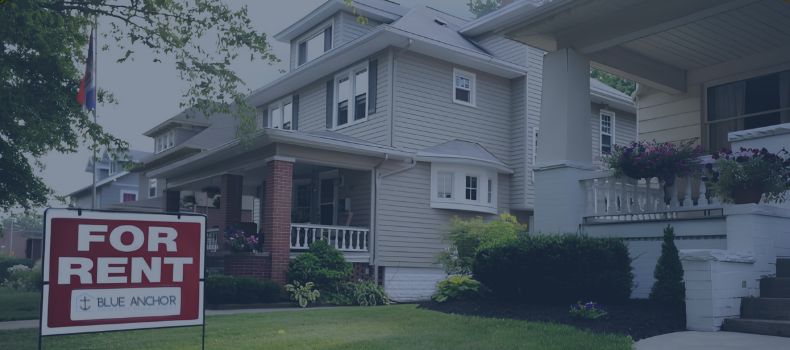Ontario Rental Market Report – February 22, 2025
Discover the latest Ontario rental market trends as of February 22. Get updated insights on rent prices, availability, and key cities.
Read MorePosted to CFB Trenton: Stress-free rental finds for military members
Discover CFB Trenton military rentals with stress-free rental finds for military members. Enjoy flexible, hassle-free housing near Canada’s largest air base.
Read MoreWhy Belleville, Ontario, Is a Great Place for Rental Investments
Discover why Belleville, Ontario, offers unbeatable rental investment opportunities. Learn how local market trends, strong demand, and expert management can boost your property portfolio.
Read MoreHow to Increase the Value of Your Rental Property in Belleville, Ontario
Improving rental property value in Belleville? Learn expert upgrades, cost-effective renovations, and property management strategies to attract great tenants.
Read MorePreparing Your Belleville Rental Property for New Tenants
Prepare your Belleville rental property for new tenants with these essential steps. Attract quality renters and ensure a smooth leasing process.
Read MoreProperty Management Services in Belleville
Looking for trusted property management services in Belleville? Discover how we help landlords and tenants succeed with professional solutions.
Read MoreBuilding Better Landlord-Tenant Relationships Through Rights and Responsibilities
Building Better Landlord-Tenant Relationships in Central Ontario In this article Introduction Let’s Start with the Basics Why It’s Important What Causes Problems? How to Make Things Better Building Trust Through Mutual Respect Moving Forward Conclusion Introduction Landlord-tenant relationships often feel tense. Misunderstandings over rent payments, repairs, or simple miscommunications can create conflict. But it doesn’t have to be this way. Building better landlord-tenant relationships in Central Ontario starts with understanding each other’s rights and responsibilities. When both landlords and tenants work together with mutual respect and clear communication, the renting experience becomes smoother and more productive. Let’s Start with the Basics One major source of conflict is unclear communication. Tenants might feel that maintenance issues are not addressed quickly enough. Landlords, on the other hand, may think tenants are not taking proper care of the property. These problems usually occur when expectations are not clearly defined. Knowing your rights and responsibilities sets the stage for healthy interactions. For example, tenants should know the reasonable timeline for repairs, and landlords must understand their specific upkeep obligations under Ontario rental law. Transparency from the start can prevent many disputes. Pro tip for tenants: Read your lease carefully before signing. If anything is unclear, ask questions immediately. Pro tip for landlords: Provide a well-documented lease that clearly outlines responsibilities and explain it to new tenants. This simple step can prevent significant misunderstandings down the road. Why It’s Important For tenants, understanding your rights means more than expecting your home to be safe, clean, and well-maintained. It includes knowing your right to privacy and protection from unfair treatment. At the same time, fulfilling your responsibilities—like paying rent on time and maintaining the property—builds trust. For landlords, it’s not just about following the law; it’s about creating a positive living environment. This involves responding promptly to maintenance requests, ensuring the property is habitable, and respecting tenants’ privacy. Landlords also expect tenants to meet their obligations, such as reporting issues promptly and adhering to community rules. When both parties honor their responsibilities, trust grows, and minor issues are less likely to escalate into major conflicts. What Causes Problems? Many common disputes arise from two main issues: Confusing Agreements If lease terms are unclear or overly complicated, misunderstandings are almost inevitable. For instance, if it’s not specified who’s responsible for lawn care or minor repairs, these small gaps can lead to disagreements. Poor Communication When issues like leaking pipes or late payments aren’t communicated early, they can snowball into bigger problems. A tenant might feel ignored if a repair request is delayed, while a landlord might feel disrespected if rent is consistently late without explanation. These challenges are frustrating but not insurmountable. Clear agreements and open dialogue can go a long way toward preventing such problems. Example: Imagine a tenant discovers mold in the bathroom but delays reporting it, thinking it’s a minor issue. Over time, the mold worsens and requires costly remediation. The landlord, feeling blindsided, may become frustrated. Early reporting and prompt action could have prevented this escalation. How to Make Things Better Improving relationships doesn’t require monumental changes. Small, consistent actions can make a big difference. Here are some practical steps: Know the Rules: Both landlords and tenants should familiarize themselves with their lease agreements and local rental laws. For example, understanding what constitutes reasonable wear and tear can prevent disputes. Learn more about your legal rights on the Government of Ontario’s housing page. Talk Openly: Honest and respectful communication is essential. If there’s a problem, address it as soon as possible. For instance, if a tenant struggles with rent, discussing it early could lead to a manageable plan instead of an eviction notice. Be Proactive: Landlords should keep up with property maintenance and conduct regular inspections (with proper notice). Tenants should report issues promptly and follow lease terms. Document Everything: Whether it’s a repair request or a rent payment, maintaining records can protect both parties if disputes arise. Digital communication tools make it easier than ever to keep accurate records. Building Trust Through Mutual Respect Mutual respect is the cornerstone of a strong rental relationship. It is built through actions that show care and consideration. For landlords, responding to maintenance requests promptly and taking tenant concerns seriously is key. For tenants, paying rent on time and treating the property with respect lays the groundwork for trust. Example: In one community housing project, a landlord adopted an open-door policy for tenants to discuss concerns directly. This approach resolved many issues before they grew and fostered a sense of community and trust. Similarly, tenants who collaboratively organize maintenance reports help landlords address multiple issues efficiently. Moving Forward Imagine a rental experience where everyone works together. Problems get solved quickly, payments are made on time, and respect flows naturally between landlords and tenants. This kind of relationship isn’t just ideal—it’s attainable with clear expectations and open dialogue. Ask yourself: What can I do today to improve this relationship? Can I clarify expectations, open a line of communication, or take proactive steps to prevent issues? Start by learning your rights and responsibilities. If you need help, don’t hesitate to reach out. Together, we can create a renting experience where everyone feels heard and valued. For more detailed guidance, you might also explore our related content on Why Belleville, Ontario, Is a Great Place for Rental Investments and How to Increase the Value of Your Rental Property in Belleville, Ontario. Conclusion Improving landlord-tenant relationships in Central Ontario starts with understanding and respecting each other’s rights and responsibilities. When communication is clear and expectations are set from the beginning, many common conflicts can be avoided. At Blue Anchor Property Management, we are committed to helping both landlords and tenants build positive, lasting relationships. Our expertise in property management and our focus on transparency and respect ensure that every rental experience is smooth and rewarding. If you’re ready to build a better relationship with your tenants or need advice on managing your property, reach out today. Visit our Contact…
Read MoreBest Real Estate Tips for Beginners in Trenton and Belleville
Real Estate Tips for Beginners in Trenton and Belleville In this article Introduction Learn About the Area Rent Out a House or Apartment Live and Rent (House Hacking) Buy, Fix, and Sell Invest Without Owning (REITs) Find a Partner Get Help Conclusion Introduction Getting started in real estate can be daunting. This article provides real estate tips for beginners in Trenton and Belleville. Whether you are a first-time buyer or a budding investor, these tips will help you navigate the local market with confidence. At Blue Anchor Property Management, we’ve spent years working side by side with investors in Northumberland County, Hastings County, and Prince Edward County. Our experience has given us a deep, practical understanding of the local market and the unique challenges investors face here. We’re passionate about sharing that insight to help you navigate your own journey in real estate. If you’re curious about the areas we work in, you can learn more on our Areas We Serve page. And if Trenton is your focus, our dedicated Trenton page offers detailed local insights. Our expertise comes from years of hands-on work, and we hope our real-world perspective inspires confidence in your investment decisions. Learn About the Area Before investing, get to know the local market in Trenton and Belleville. Research neighborhoods, check current house prices, and understand which areas are growing. This groundwork helps you find the best opportunities. Research Local Trends: Look at data from trusted sources, such as Trenton Ontario Real Estate Market Home Buyer Tips. Examine House Prices: Compare current prices and growth trends using information from Belleville, Ontario Real Estate Market Data. Neighborhood Vibe: Consider safety, schools, and community feel to determine the best location. Rent Out a House or Apartment Rental income is a common entry point for real estate beginners. Renting out a property can provide steady cash flow and help you learn the ropes. Monthly Income: Receive consistent rent that helps cover costs. Property Appreciation: Over time, the property may increase in value. Start Small: Begin with a modest house or apartment for easier management. Live and Rent (House Hacking) House hacking is a clever strategy. Purchase a multi-unit property, live in one unit, and rent out the others. This approach can offset your mortgage and provide hands-on experience. Save on Costs: Rental income from other units helps pay your mortgage. Gain Experience: Living on-site gives you practical knowledge about property management. Shared Expenses: Utility and maintenance costs are divided, easing your financial burden. This strategy is ideal for beginners who want to learn while minimizing expenses. Buy, Fix, and Sell If you enjoy renovations, consider buying a property that needs work, fixing it up, and then selling it for a profit. Know Your Costs: Understand repair expenses before buying. Choose the Right Location: Invest in areas with strong demand. Start Small: Begin with a property that needs minimal repairs. For more detailed market trends, consider reading 2024: What to Expect in the Quinte Area’s Real Estate Market. Invest Without Owning (REITs) If direct property ownership feels overwhelming, consider Real Estate Investment Trusts (REITs). No Direct Management: REITs let you invest without handling repairs or tenants. Low Entry Cost: Start with a small investment. Diversification: Spread risk across a portfolio of properties. This option is perfect for beginners who want exposure to real estate without the full commitment of ownership. Find a Partner Investing with a partner can reduce risk. Sharing costs and responsibilities makes the process more manageable. Ask Friends or Family: You might find someone interested in investing together. Join Real Estate Groups: Look for local meetups or online forums for potential partners. This collaborative approach can be less intimidating than going it alone. For expert advice on partnerships, our Contact Us page is a great starting point. Get Help If you feel unsure about your next step, seek professional help. A real estate agent or property management company can guide you through the process. Expert Guidance: Professionals know the local market and can offer valuable insights. Reduced Stress: They handle complex tasks, leaving you more time. Better Decision-Making: With expert help, you are more likely to make informed choices. For personalized support, connect with Blue Anchor Property Management. Conclusion Starting in real estate might seem challenging, but by following these real estate tips for beginners in Trenton and Belleville, you can build a strong foundation. Whether you choose to rent out a property, try house hacking, fix and flip, invest in REITs, or team up with a partner, starting small and doing your homework is key. Clear, practical advice and expert guidance will help you navigate the Trenton and Belleville markets with confidence. For more detailed insights, explore our Areas We Serve page, and if you’re focused on Trenton, visit our Trenton page. At Blue Anchor Property Management, we are here to support your real estate journey. Reach out for a free consultation and let our experts help you build your property portfolio in Central Ontario.
Read MoreHow to Finance Real Estate Investments: Strategies for Every Investor
Investing in real estate can be very rewarding, but finding the money to buy property is often the hardest part. Whether you’re just starting out or have some experience, it’s important to know your options for getting the money you need. Here’s a simple guide to help you understand the different ways to finance real estate. Ways to Finance Real Estate Investments There are a few common ways to get the money you need: 1. Traditional Mortgage Loans 2. Hard Money Loans 3. Private Money Lenders 4. Seller Financing 5.Real Estate Partnerships Each method has its own good and bad sides. Let’s go through them one by one. 1. Traditional Mortgage Loans This is the most common way to buy property. You borrow money from a bank or lender and usually need to pay about 20% to 30% of the property price upfront. Pros: Lower Interest Rates: You pay less interest compared to other options. Fixed Payments: Your monthly payments stay the same, making it easier to plan. Cons: Strict Requirements: You need a good credit score, steady job, and lots of paperwork. Takes Time: Getting approved can take several weeks. 2. Hard Money Loans Hard money loans come from private lenders instead of banks. These loans are usually for short-term projects and are good for quick access to money. Pros: Quick Approval: You can get the money in a few days. Flexible Requirements: Lenders focus more on the property than your credit score. Cons: High Interest Rates: You’ll pay more in interest. Short-Term: You usually have to pay back the loan within a year. 3. Private Money Lenders Private money lenders are people you know, like friends or family, who lend you money for your investment. Pros: Flexible Terms: You can agree on how much interest to pay and when to pay it back. Fast Access: You can get the money quickly. Cons: Risk to Relationships: Borrowing from people you know can cause problems if things don’t go well. Higher Interest Rates: Rates can be higher than with a bank loan. 4. Seller Financing In this case, the person selling the property lets you pay them directly instead of going to a bank. Pros: Easier to Qualify: You don’t need perfect credit. Negotiable Terms: You can work out a deal that fits both you and the seller. Cons: Higher Interest Rates: You might end up paying more interest than with a bank. Existing Mortgage Issues: If the seller still owes money on their mortgage, it could cause problems. 5. Real Estate Partnerships A real estate partnership is when you team up with other people to share the costs, risks, and profits. Pros: Shared Risk: You don’t have to handle everything by yourself. More Money Available: Working with others means you can invest in bigger projects. Cons: Sharing Profits: You’ll have to split the earnings. Possible Disagreements: You might not always agree with your partners. Choosing the Best Option The best way to finance your investment depends on your situation. If you’re new, a traditional mortgage might be a safe choice. If you have more experience, you might prefer a hard money loan or working with partners. Conclusion Finding the right way to finance your real estate investment doesn’t have to be difficult. Each option has its benefits, so think about what works best for you. If you’d like more help or advice, feel free to reach out – we’re here to help you start your real estate journey!
Read MoreWhy Location is Important in Trenton and Belleville Real Estate Investments
When it comes to real estate, there’s one thing everyone agrees on: location is everything. This is especially true for places like Trenton and Belleville in Ontario, which are becoming popular spots for investors. Whether you’re new to real estate or have some experience, understanding why location matters can help you make better decisions. First, let’s talk about accessibility. Both Trenton and Belleville are right off Highway 401, which means they’re well-connected to bigger cities like Toronto and Ottawa. Trenton is also home to CFB Trenton, one of Canada’s biggest air force bases. Because of this, there’s always a demand for housing from military families who move in and out regularly. Belleville also benefits from its easy access to transportation and a good public transit system, making it a great place for people who need to commute. Being close to major roads and transit options makes properties more attractive, which usually leads to higher home values. Next is the local economy. Trenton’s economy is supported by the air force base, which provides stable jobs and keeps the housing market strong. Belleville, on the other hand, is growing in industries like manufacturing, food production, and even tech. More jobs in the area mean more people looking for places to live, which is great if you’re looking to rent out a property or sell it later for a profit. One of the biggest draws for investors is affordability. Compared to expensive cities like Toronto, both Trenton and Belleville offer much more affordable housing. This is good news if you’re just getting started or don’t have a huge budget. Lower property prices mean it’s easier to get into the market. Plus, a lower cost of living attracts people who want more space but can’t afford the high prices in bigger cities. For investors, this is a win-win. You can buy property without spending too much upfront, and as more people move to these areas for affordable housing, demand will increase, driving up property values over time. This makes it a good option if you’re looking for both short-term rental income and long-term appreciation. Finally, quality of life is another big reason people are drawn to Trenton and Belleville. These cities offer the charm of small-town living but with modern conveniences. They’re close to nature, with places like the Bay of Quinte and lots of parks for outdoor activities. Families love the good schools and community feel, while retirees appreciate the peaceful environment. As an investor, this means your property is likely to stay in demand, whether for rent or sale. People want to live in areas that offer a good balance of affordability and lifestyle, which is exactly what Trenton and Belleville provide. This reduces the risk of vacancies and increases the chances of property value growth over time. In conclusion, location truly matters when investing in real estate, and Trenton and Belleville are perfect examples of why. With good connections, growing economies, affordable housing, and a great quality of life, these cities offer solid opportunities for investors. Whether you’re looking for rental income or long-term growth, understanding the importance of location will help you make smart investment choices.
Read More





